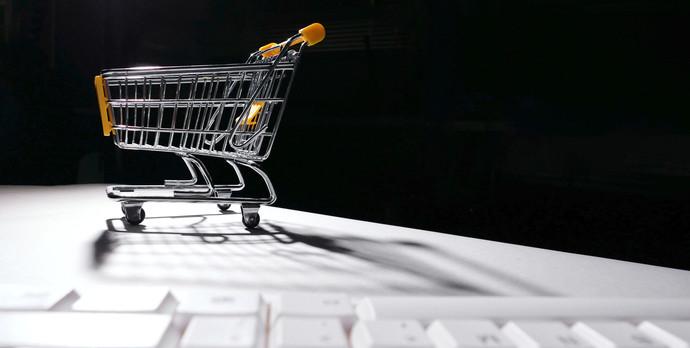
India's grocery retail market has always been fiercely competitive, Amazon, Walmart and Reliance and other companies compete for this $600 billion market, but according to Reuters reported on the 23rd, two relatively small companies Blinkit and Zepto have sprung up, becoming the first choice for many residents in New Delhi when shopping daily.
Both companies share the same core competencies, both flaunting their ability to provide ten-minute home delivery service, which is far superior to the same-day or hour-hour delivery service provided by other large companies.
"Ten minute service"
On the official web pages of Blinkit and Zepto, both deliberately emphasize their selling point in large letters, that is, ten-minute home delivery service. Compared with giants such as Amazon, they are relatively young and small in size to occupy a place in the Indian department store market, relying on this "ten-minute service".
The two companies, in densely populated areas such as New Delhi and surrounding cities, rent or buy so-called "dark stores" and small warehouses to pack goods and have riders deliver to their doors, a process that is rigidly prescribed within ten minutes. Taking fully into account the complex road conditions in Indian large cities such as New Delhi, it is not the choice to rent large warehouses to distribute goods uniformly, but to divide into many small outlets throughout the city.
At present, the need for express delivery business is growing among residents of India's major cities. The changing epidemic and local epidemic prevention measures have made them need a faster and safer way to purchase, and express delivery is the method of choice for most people. In the choice of which company to use, Blinkit and Zepto's ten-minute express service have direct and unparalleled advantages.
"The service is very convenient, it has changed the way I live," Sharmistha Lahiri, a resident of Gulgram City near New Delhi, said in an interview, using Blinkit to make emergency purchases when the ingredients in her kitchen suddenly ran out. She is a loyal user of BigBasket, an online grocery carrier owned by Amazon and Indian conglomerate Tata, but now appreciates Blinkit's quick response in this situation.
Research firm RedSeer said that as business activity grows, India's "quick commerce" was worth $300 million last year and will grow 10 to 15 times to $5 billion by 2025.
Traffic safety hazards
However, the problem also comes. Blinkit and Zepto also face some problems, the most important of which is traffic. Due to the irrationality of urban planning and other residual problems, the road condition of roads in the city has been poor.
Even in cities, most roads are covered with potholes, cows or other animals often stray into traffic, plus Indian drivers are known worldwide for not following traffic rules.
World Bank statistics show that last year, one person died on the road in India every four minutes, and car accidents killed about 150,000 people a year.
Reuters interviewed 13 courier riders from Blinkit and Zepto in major cities such as Mumbai and New Delhi. They all said they all had to speed because of the pressure to deliver on time.
"We only have five to six minutes on the road, and I'm nervous and worried about my livelihood and my life." A Blinkit rider who asked for anonymity said.
Last August, Blinkit's CEO tweeted that riders would not be penalized and could deliver "at their own pace" because there must be "behind-the-scenes stores" near the destination.
But many of the delivery riders told the media that they marked the order as delivered even before they reached their destination because they couldn't keep up with the time. Because if the customer complains, they will face a fine of Rs 300. A screenshot of the Blinkit app also shows some orders that mark delivered, but in fact the goods are not delivered.
Some of the riders interviewed even said they were injured in order to catch the ten-minute deadline.
Blinkit called its service "no different from magic" and said it wants to expand the business to $100 billion. Zepto is already valued at $570 million and intends to become a $20 billion company. However, unlike most foreign companies that charge a $2-3 delivery fee, delivery services for Indian startups are almost free in a country with 1.4 billion potential customers. T.N. Harry, head of human resources at online grocer BigBasket, said: "With free shipping, this business is unlikely to continue."
But for now, Indian customers are very satisfied with such a fast service, and even during the new Chinese New Year's Eve, there are riders at work, delivering more than 43,000 sodas.
(Edit email: [email protected])